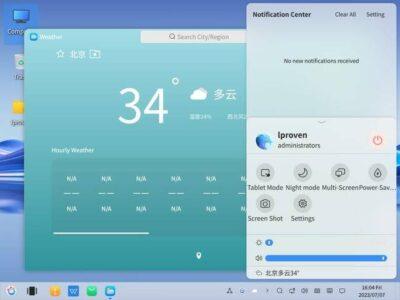China’s openKylin 1.0 arrives. Our verdict? Not a bad-looking, er, Ubuntu remix: It’s certainly not the country’s ‘first homegrown open source desktop operating system’

Version 1.0 of the openKylin Linux distro for the domestic Chinese market is here – and it works pretty well in English, too.
As The Reg reported last year, openKylin has been in development for some years. The FOSS desk took openKylin 0.7 for a spin soon afterwards. It reached version 0.9.5 at the start of 2023, and now the finished release 1.0 is available, codenamed “Yangtze” after the great river of China, the longest watercourse in Eurasia.
OpenKylin is an Ubuntu remix and it has the UKUI desktop. UKUI is one of the most polished Linux desktops around, and puts most of the more mainstream Western desktops to shame. The desktop looks very similar to the one in Ubuntu Kylin 22.04, but it had no problems with VirtualBox’s 3D acceleration and didn’t default to dark mode as that release did.
There was a decision made quite a few years ago at one of the BRICS summits in Brazil, that the BRICS nations would actually look at doing exactly this. In other words, they were going to each produce their own national operating system. All of those countries did in fact start such initiatives, but for some reason South Africa never did, and South Africa still sits in a very expense strangle-hold by Microsoft. Ironically enough, long before this in the mid-2000’s, South Africa did have it’s own government funded Linux distro that was called Impi Linux. Back then, South Africa had quite a big drive towards open source software, and for it to be a way of boosting local economic investment. This drive was actually what introduced me to open source software, but the difference is I stuck with that philosophy, while the government did not (I’ve saved a lot of money and learnt a lot about software in this time).
See https://www.theregister.com/2023/07/07/openkylin_is_ubuntu/
Comments